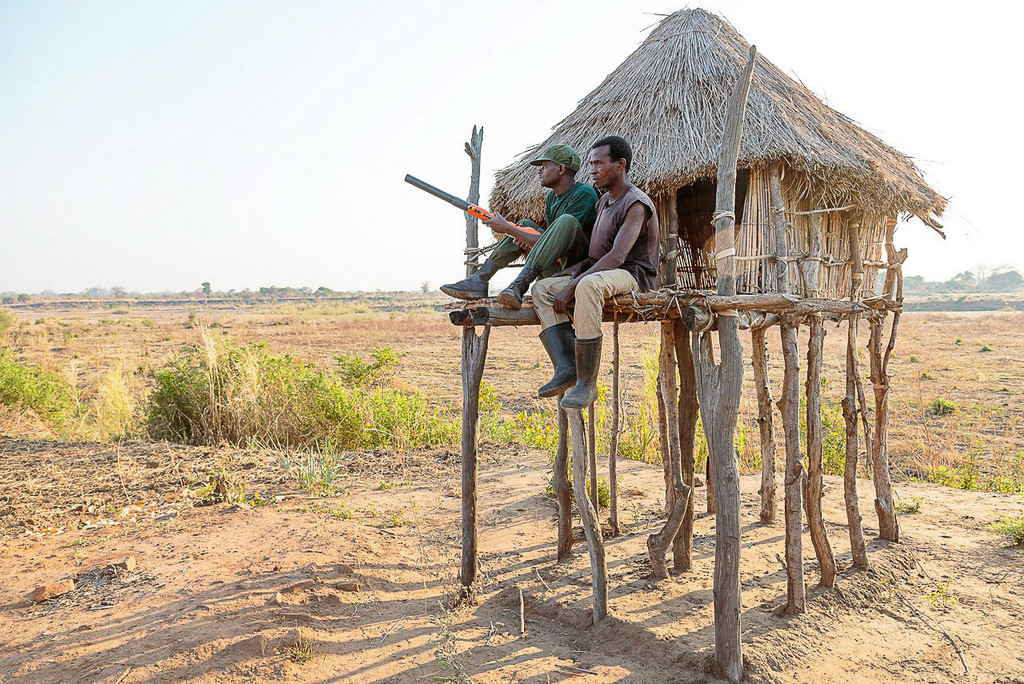
Communities surrounding the South Luangwa National Park in Zambia often face huge losses due to elephant conflicts. The booming development of the Luangwa Valley has resulted in more farms and infrastructure being built, which has caused an increased level of human-wildlife conflict in the community. During the crop-growing season, elephants cross the Luangwa River and enter the surrounding villages, where they raid crop fields and damage property in their forage for food. This can result in devastating outcomes for local farmers who lose their livelihood, and the elephants who are met with negative retaliations.
To help mitigate this conflict, 20 volunteers from Conservation South Luangwa (CSL) have been using ‘chilli balls’ (ping pong balls filled with chilli oil) to deter elephants from crop fields. Volunteers in Kakumbi Chiefdom have been equipped with boots, rain jackets, overalls and torches to enable them to patrol high-risk zones that are likely to be raided by elephants. The volunteers patrol during the night as this is when the elephants are most active in the village.
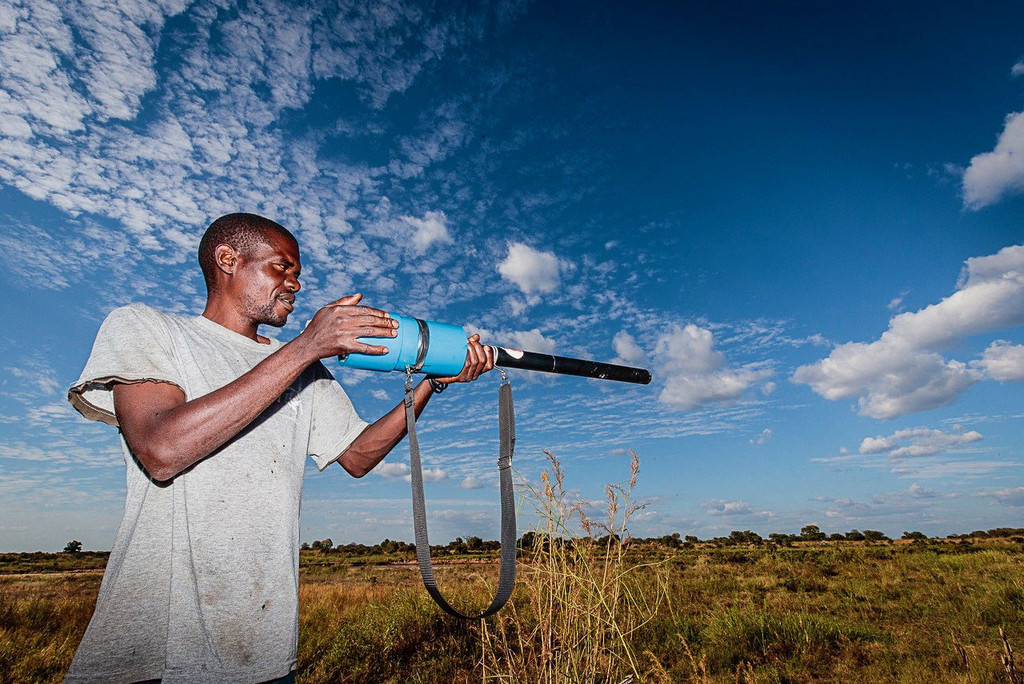
Once an elephant begins to approach a crop field, the CSL volunteer ‘chilli patrollers’ fire a small chilli ball at the hindquarters of the elephant to deter it. The balls leave chilli oil on their skin, causing them no harm other than a mild discomfort due to the smell of chilli, which acts as enough of a deterrent.
The chilli blasters are simple devices, designed to deter but not hurt an elephant. To fire a chilli ball, the wide end chamber of the chilli blaster is unscrewed and a ping pong ball filled with chilli oil is placed inside it. Flammable insect spray is sprayed into the chamber, and then it is quickly closed. There is an igniter mounted at the back of the device which when clicked provides a spark that ignites the gas, firing the ping pong ball out of the narrow tube with a loud bang. For each round the device needs to be unscrewed and re-loaded. So the chilli patroller is careful to fire with control and make every shot count.

The ball explodes when it hits the hindquarters of the elephant, the gas quickly evaporates, leaving some chilli oil on the skin. When the elephant uses its trunk to investigate the spot, it finds the unpleasant chilli mixture. It usually takes a few attempts for the combination of the loud bang and the chilli oil to take effect, and for the elephant to decide to move on and feed elsewhere. The oil is then easily washed away when the elephant next mud bathes or sprays itself with water.
If communities are not supported in wildlife conflict zones, then they often resort to throwing rocks, fireworks, or will even use illegal firearms. All of these cause much more harm to elephants than the chilli patrollers with their blasters.
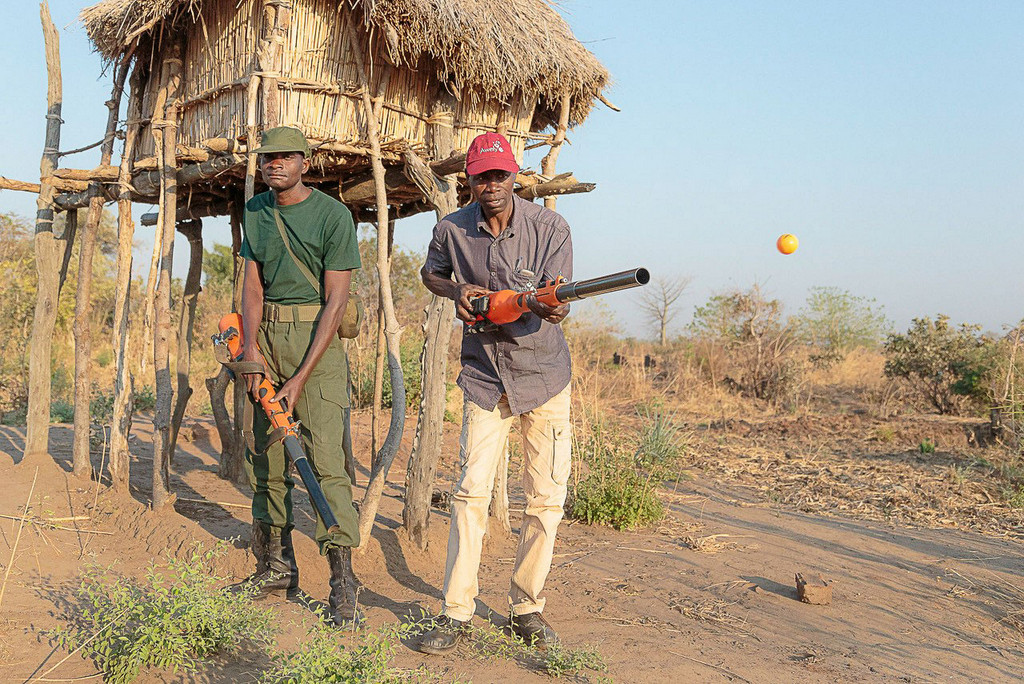
The chilli-patrolling efforts are utilised with chilli brick burning, elephant restraining fences, as well as the use of safe-grain stores which elephants cannot break into. These initiatives, combined with support from the local community, have been key to the success of the project. During this year’s farming season, over 3,000 incidences of human-elephant conflict were averted – 1,363 of these being in the Kakumbi Chiefdom.
Due to the success of the project, CSL are planning on increasing the number of patrollers to 30 for next year’s crop-growing season to continue working side by side with the community to minimise this conflict.
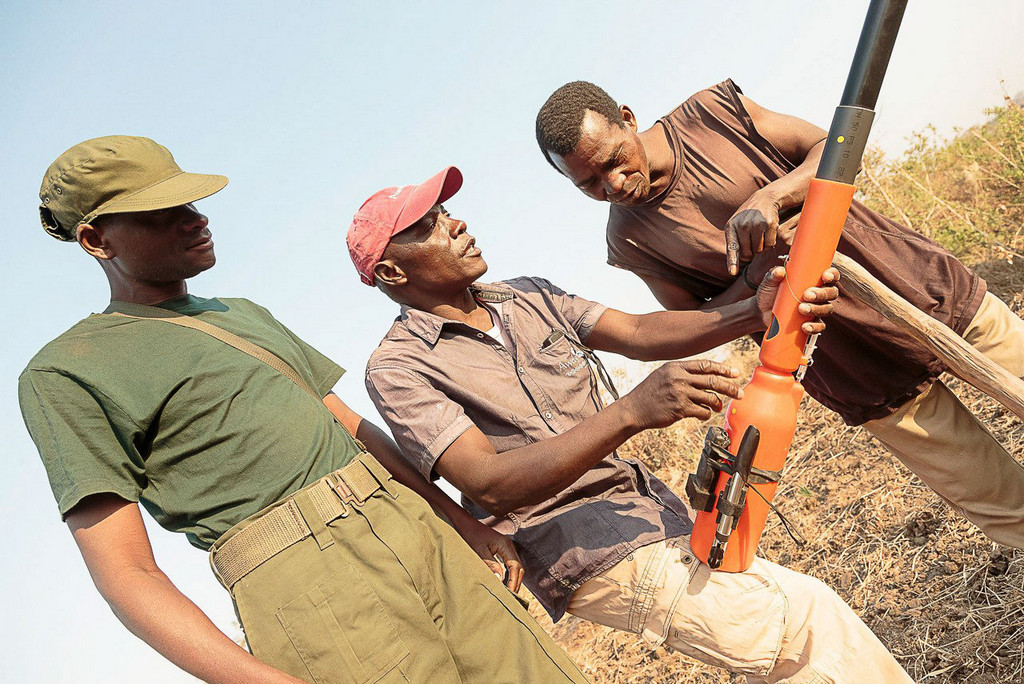
Emma Robinson, HWC Program Manager says: “The nine chilli patrollers achieved 1,333 man-nights, firing 839 chilli ping pong balls to deter over 1,363 elephants in four months. This real practical help makes such a difference to the farmers, who are supportive of the project. In return, they help the patrollers by clearing pathways to their fields, so they can move around easily and safely after dark. They also increase the patrollers’ effectiveness by raising an early warning when they see approaching elephants. Not surprisingly, it’s much easier to move an elephant on, before its found a plentiful supply of deliciousness.”
“Before the patrollers started, farmers could lose their entire harvest, whereas working with the chilli patrollers they will always harvest at least two bags of maize. We hope that by increasing the number of patrollers next year and adding a fourth chiefdom, we will be able to see the benefits of reduced human-elephant conflict, reaching even more farmers.”
To find out more about this, please visit www.cslzambia.org.
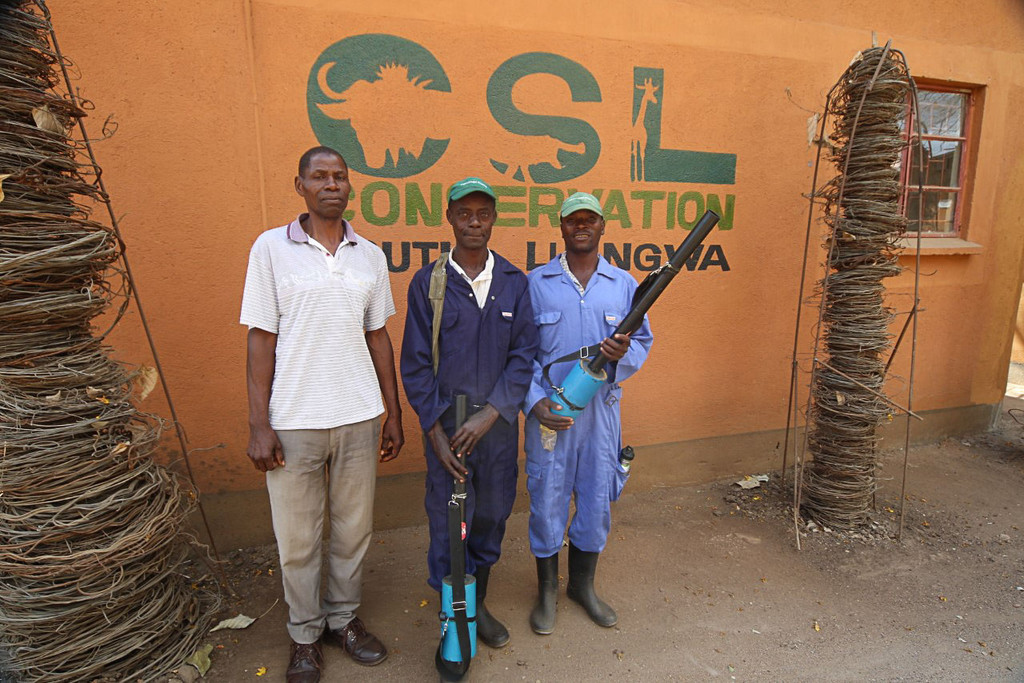
To comment on this story: Login (or sign up) to our app here - it's a troll-free safe place 🙂.![]()






